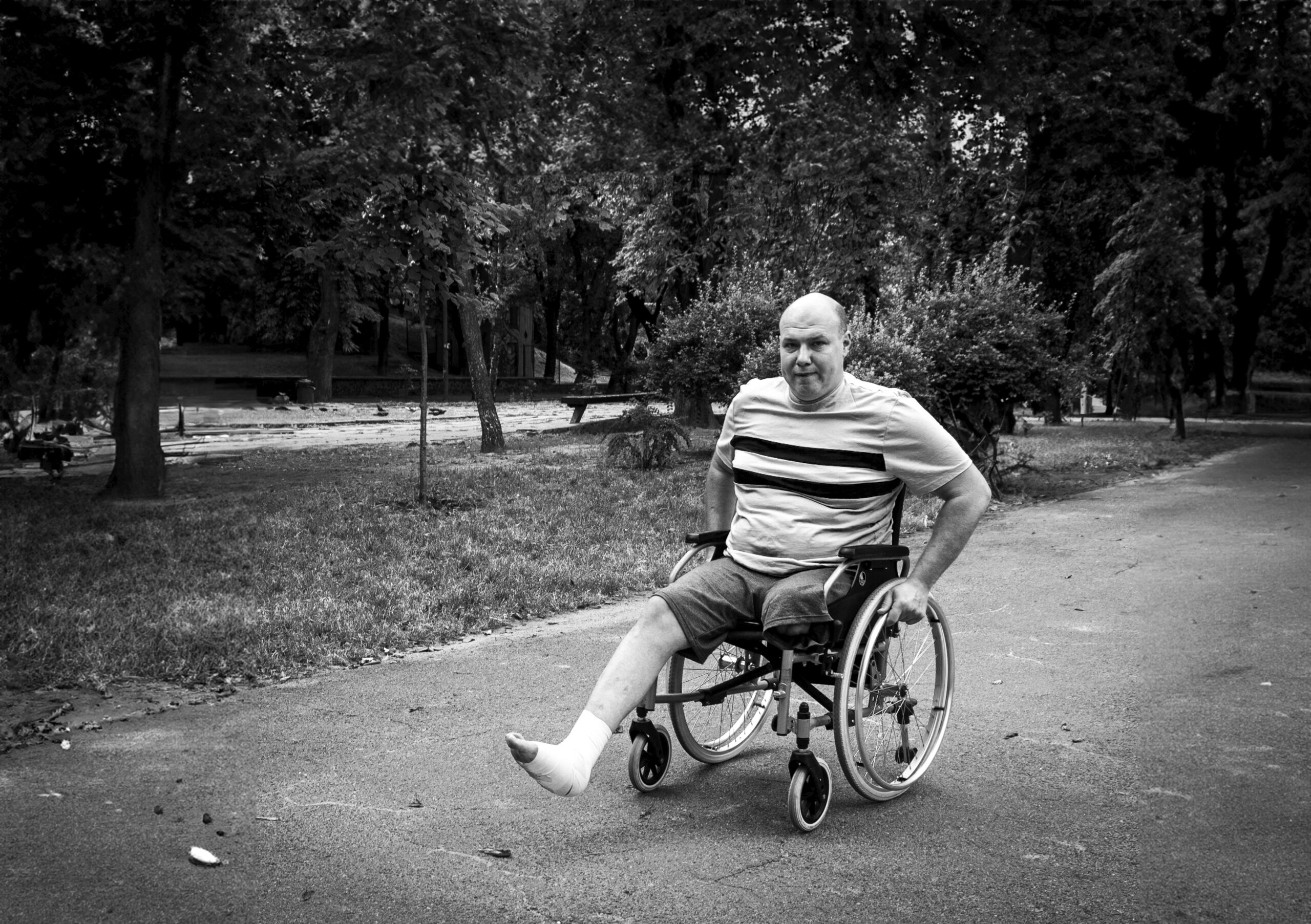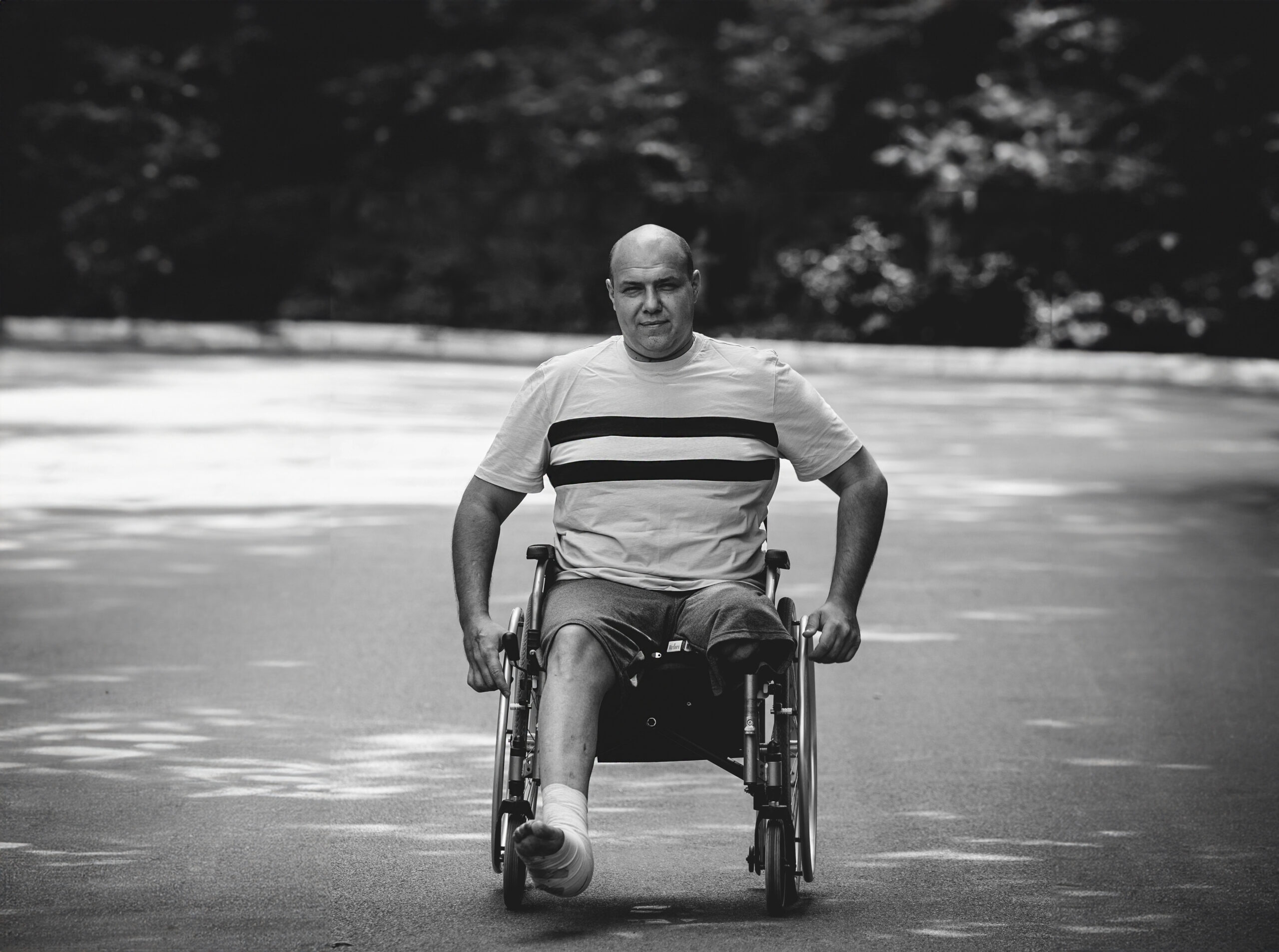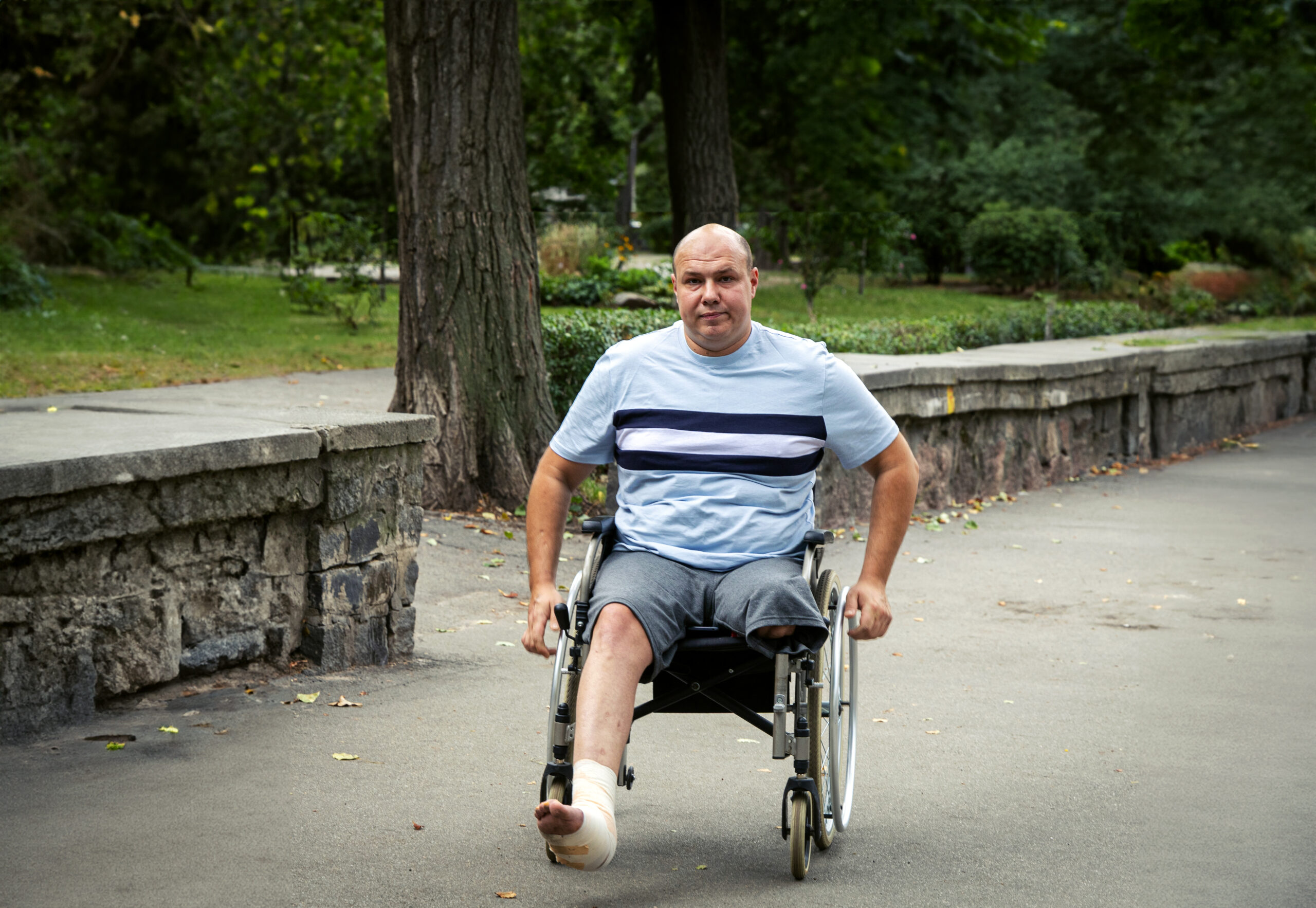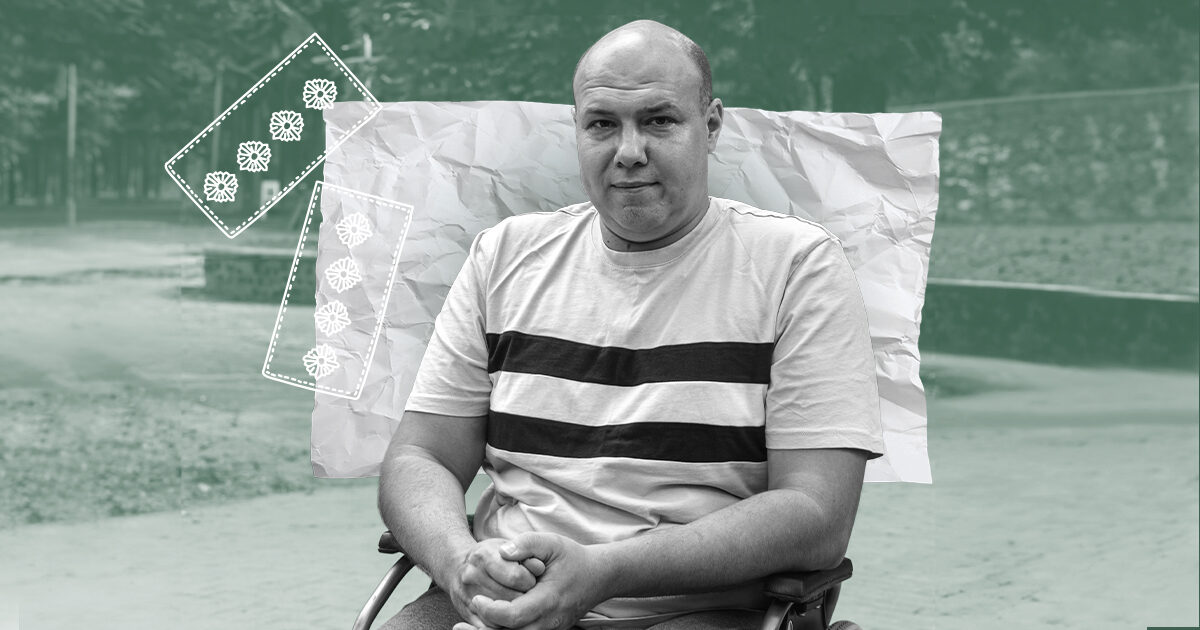
While studying at the university in Sumy, he graduated from the military department and got a job. In 2014, when the Russian-Ukrainian war in the east of Ukraine began, he went to fight in the first wave of mobilization.
After demobilization, he returned to civilian life, but memories and the desire to continue his service prevailed: since 2017, Ovchynnykov has been serving in the army under contract. He is a serviceman of the 58th Separate Motorized Infantry Brigade and a company commander in the 15th Motorized Infantry Battalion.
"This is a tough job because you are responsible not only for the fulfillment of the assigned task and the preservation of weapons but also for human lives," Ovchynnykov says about the duties of a company commander.
The military unit in which Captain Ovchynnykov serves is located less than 30 kilometers from the border with Russia. Even before February 24, when Russia launched its full-scale invasion of Ukraine, probable scenarios of an enemy attack were worked out here. When a full-scale invasion started, Ovchynnykov's unit advanced to the defense of Sumy, later to the defense of Konotop and the cover of the brigade. The main combat operations of the unit took place in the Chernihiv region.
"The enemy outnumbered us by almost 50 times in combat power. It was tough. However, we were ready to repel any attacks and the enemy's desire to conquer our land," says the soldier.
How the unit defended Chernihiv
March 14, 2022, was the most memorable for the soldier. Then, at approximately 4 p.m., the enemy began an assault on the village of Skorynets to advance to Chernihiv, located 25 kilometers away.
Ovchynnykov says that the combined company of the Russians had six T-72 tanks and four armored personnel carriers, BTR-80s. Captain Ovchynnykov decided to repel the enemy attack with the forces of his unit, which, at that time, had 15 service members.

March 14, 2022 was a turning point in the defender's life.
In the first minutes of the enemy assault, Ovchynnykov's unit destroyed the T-72 tank and BTR-80 with the help of anti-tank guided missiles NLAW. Next, the unit destroyed two more T-72 tanks and two BTR-80 tanks with enemy manpower.
The Russians fired at the Ukrainian army with mortars and tanks, and three soldiers received shrapnel wounds. They were given first aid and evacuated.
Company commander Ovchynnykov decided to move to the depths of the village for further defense and to prevent an enemy breakthrough. Ovchynnykov contacted the artillery units of the 58th Motorized Brigade to destroy the rest of the enemy company.
"I used my own SUV to move the available ammunition and anti-tank weapons — the others had already been destroyed at that time — and came under enemy tank fire," the soldier recalls.
Ovchynnykov received numerous injuries: traumatic amputation of the left leg at the level of the lower leg, fractures of both bones of the right lower leg, open fractures of the right forearm, and multiple fractures of the right hand, as well as acubarotrauma, so-called contusion.
A combat medic and a unit soldier pulled the captain out of the car and provided first aid. For almost three hours, the soldiers evacuated the commander on foot on a stretcher to the nearest stabilization point. It was impossible to evacuate by motor vehicles as the enemy stormed nearby settlements and carried out constant artillery fire.
Ovchynnykov summarizes: "As a result of the battle in the village of Skorynets, the enemy suffered heavy losses of combat equipment and manpower and retreated. Approaches to Chernihiv were defended, and I was awarded the Order of Bohdan Khmelnytsky for performing a combat mission."
"I am like combat equipment: as soon as I am repaired, I will return to service"
Ovchynnykov still feels the consequences of that battle. He says: "I received a knee module for prosthetics, but I haven't had time to use it yet because I had an operation right after I came from Estonia. I hope to master the prosthesis and to understand its potential and possibilities."

The soldier is still preparing to start mastering his prosthesis.
At the time of the interview, the soldier was in one of Kyiv's hospitals. "The stump on which the prosthesis is attached was cut a little, and it takes some time to heal. Then they will try to get me on the prosthesis," explains the soldier.
Ovchynnykov calls on other wounded soldiers to believe this difficult path can be overcome: "Life does not end there." The soldier himself is supported by the same fighters who overcome the difficulties of wounds and do not give up.
"The family also supported me very much," the soldier shares. "I did not lose heart. From the beginning, I thought I was like combat equipment: as I am repaired, I will return to service. I didn't dwell on the fact that this is some kind of verdict for me."
During his stay in Estonia, Ovchynnykov was pleasantly surprised by the excellent attitude of both the medical staff and the rest of the Estonians towards Ukrainian soldiers: "They arranged a very interesting program for us with various excursions, showed us around Tallinn, and generally made the prosthetics process psychologically easy. This is an outstanding program that works to help military personnel regain the meaning of life."

Ovchynnykov says that a new limb gives a new meaning to life.
The series of materials Faces of Strength was created within the framework of the special project of the Ukrainian Charitable Foundation BGV and solutions media Rubryka as a way to express gratitude to the Republic of Estonia for the systematic support and with great hope for the continuation of the program on prosthetics of Ukrainians. You can support the prosthetics of Ukrainian defenders by clicking HERE. Your contribution will go towards covering logistics costs for program participants.
Newsletter
Digest of the most interesting news: just about the main thing







